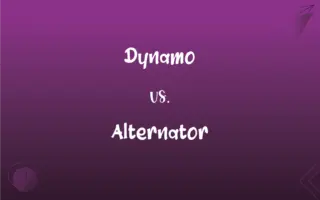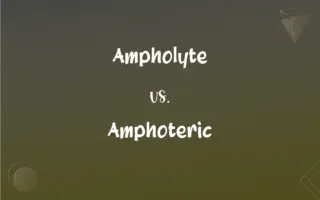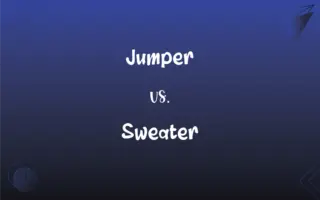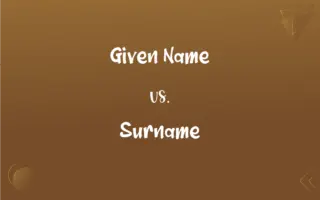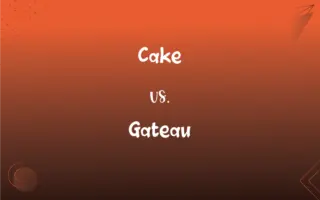Probability vs. Possibility: What's the Difference?
Edited by Aimie Carlson || By Janet White || Published on December 28, 2023
Probability measures the likelihood of an event occurring, while possibility indicates if an event can occur, regardless of its likelihood.
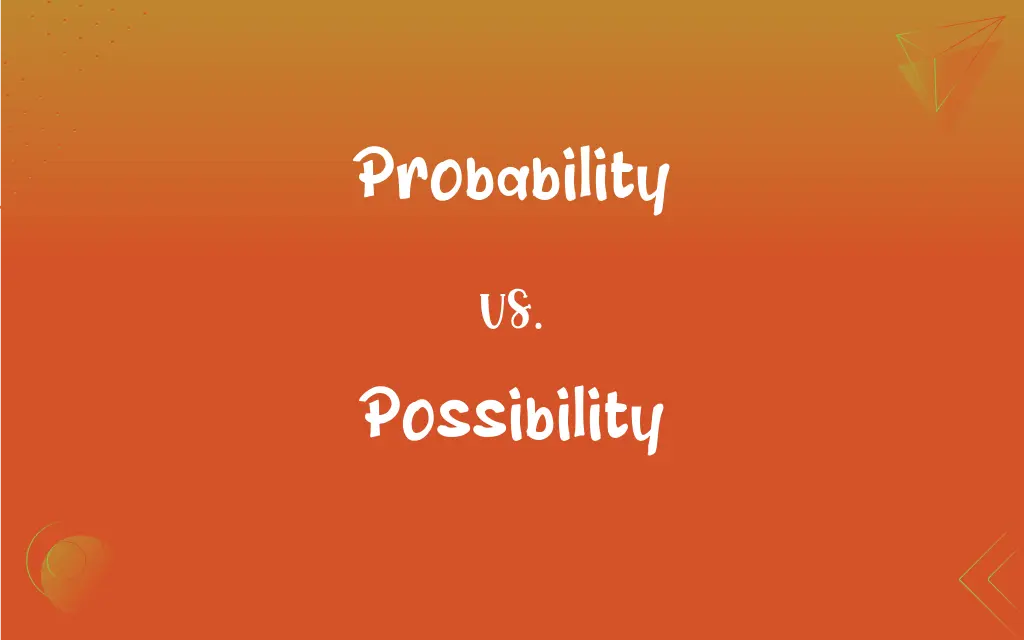
Key Differences
Probability quantifies the chance of an event happening, often expressed as a percentage or a fraction. Possibility, on the other hand, simply refers to the potential for something to happen, without quantifying how likely it is.
Probability is a numerical concept, typically ranging from 0 (impossible) to 1 (certain). Possibility does not involve numerical measurement; it is a qualitative concept, indicating that something could occur.
In probability, events are considered in terms of statistical or empirical likelihood. Possibility deals with the broader concept of whether an event is feasible, without delving into its statistical probability.
Probability is used in contexts where the likelihood of different outcomes is important, such as in risk assessment or betting. Possibility is often used in a more general sense, to express that something is not ruled out.
Understanding probability requires knowledge of statistics and mathematics, as it involves calculations. Understanding possibility does not require such knowledge, as it is a more conceptual idea.
ADVERTISEMENT
Comparison Chart
Nature
Quantitative
Qualitative
Measurement
Expressed numerically (e.g., percentages, fractions)
Not numerically measured
Usage in Language
Used to express likelihood
Used to express capability or potential
Relevance
Relevant in statistical and empirical contexts
Relevant in theoretical or conceptual contexts
Knowledge Required
Requires understanding of mathematics and statistics
Does not require specialized mathematical knowledge
ADVERTISEMENT
Probability and Possibility Definitions
Probability
Probability refers to the degree of certainty of an event happening.
There is a high probability of rain tomorrow.
Possibility
Possibility refers to the potential for something to happen.
There is a possibility of finding life on other planets.
Probability
Probability is the likelihood of an event occurring.
The probability of rolling a six on a dice is 1/6.
Possibility
Possibility suggests the existence of options or alternatives.
There is a possibility of taking different routes to reach the destination.
Probability
Probability is a quantifiable prediction of an event’s occurrence.
The probability of drawing an ace from a deck of cards is 1 in 13.
Possibility
Possibility denotes the absence of impossibility.
There's always the possibility of surprise in mystery novels.
Probability
Probability is a statistical measure of the expected frequency of an event.
The probability of winning the lottery is extremely low.
Possibility
Possibility indicates something that can occur, without implying likelihood.
There's a possibility of me moving to a new city next year.
Probability
Probability indicates the chance of a specific outcome.
The probability of flipping a coin and getting heads is 50%.
Possibility
Possibility is the state of being achievable or conceivable.
There is a possibility of achieving world peace.
Probability
The quality or condition of being probable; likelihood.
Possibility
The fact or state of being possible
Investigating the possibility of life on other planets.
Probability
A probable situation, condition, or event
Her election is a clear probability.
Possibility
Something that is possible
His promotion now seems a possibility.
FAQs
What is possibility?
Possibility refers to the potential of something happening, without quantifying its likelihood.
Can possibility be quantified?
No, possibility is qualitative and does not involve numerical measurement.
Can something have a low probability but still be possible?
Yes, events can have a low probability and still be possible.
Can something be possible but have no probability?
Yes, if it's outside the realm of current understanding or prediction.
What is probability?
Probability is the measure of the likelihood that an event will occur.
Is zero probability the same as impossibility?
Not necessarily. Zero probability means extremely unlikely, but not always impossible.
Is probability always expressed as a number?
Yes, probability is typically expressed numerically.
How does probability affect decision-making?
Probability helps in assessing risks and making informed decisions.
Is possibility concerned with future events only?
Mostly, but it can also refer to hypotheticals in the present or past.
Can probability be subjective?
Yes, especially in situations with incomplete information.
Do all possible events have a probability?
In theory, yes, but calculating it may not always be feasible.
Can probability change over time?
Yes, as new information emerges, the probability of events can change.
Does high probability guarantee an outcome?
No, it only indicates a high likelihood, not certainty.
How is probability calculated?
Probability is calculated using mathematical formulas and statistical models.
What role do possibility and probability play in science?
They help formulate hypotheses and predict outcomes in experiments.
Can possibility lead to discovering new probabilities?
Yes, exploring possibilities can lead to new insights and probabilistic evaluations.
Can something be impossible yet probable?
No, if something is impossible, it cannot have a probability.
Is there a limit to what can be considered possible?
Generally, if it defies fundamental laws of nature, it's considered impossible.
Does possibility have degrees like probability?
No, possibility is a binary concept: either something is possible, or it isn't.
Are there different types of probability?
Yes, including theoretical, experimental, and subjective probability.
About Author
Written by
Janet WhiteJanet White has been an esteemed writer and blogger for Difference Wiki. Holding a Master's degree in Science and Medical Journalism from the prestigious Boston University, she has consistently demonstrated her expertise and passion for her field. When she's not immersed in her work, Janet relishes her time exercising, delving into a good book, and cherishing moments with friends and family.
Edited by
Aimie CarlsonAimie Carlson, holding a master's degree in English literature, is a fervent English language enthusiast. She lends her writing talents to Difference Wiki, a prominent website that specializes in comparisons, offering readers insightful analyses that both captivate and inform.
